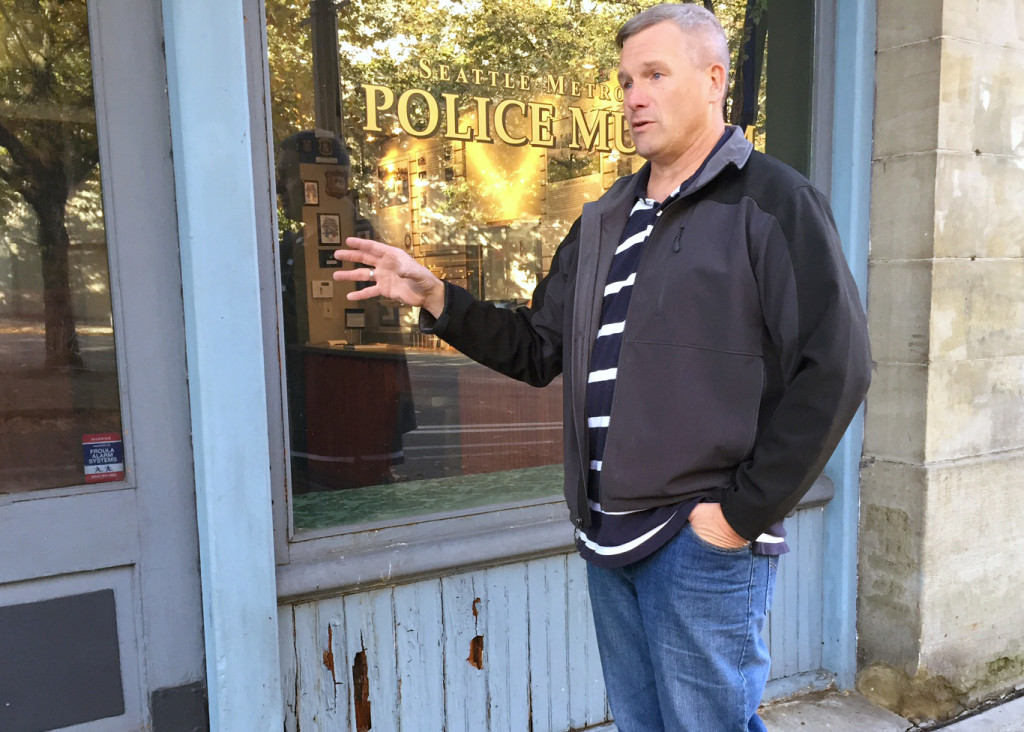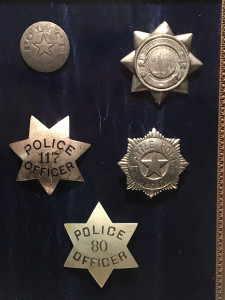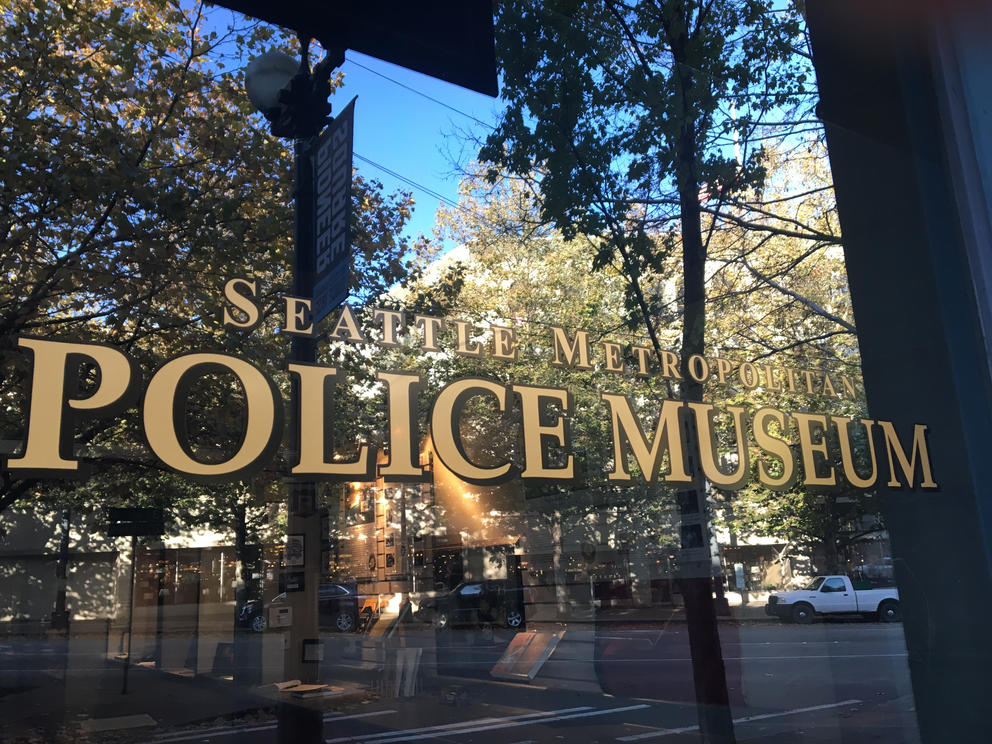The Seattle Metropolitan Police Museum, one of the historic gems of Pioneer Square, has announced that it is closing and moving its collection due to safety concerns.
The museum, located near Third Avenue South and Jackson Street, is devoted to the history of the Seattle Police Department and the King County Sheriff’s Department.
The man in charge and the museum’s guiding spirit is SPD Officer Jim Ritter. He says he believes the building has become untenable for his museum due to ground settling and visible cracks that he suspects are due to Bertha and the waterfront tunnel project.
Ground settlement has been a big issue in Pioneer Square, much of which is built on landfill and former mudflats. The city had to contend with replacing a major sewer line on First Avenue due to settlement. Buildings near the Bertha tunnel boring machine rescue pit were also at risk. Other property owners have filed claims with the state over tunnel project-related damage.

Ritter says some of the building’s floorboards have rotted due to damage from a steam tunnel break. One of the museum board members put her high heel right through the rotten floorboards, he says. Some of the damage is very visible: The sidewalk outside is sloping. Cracks have appeared in the original 1909 plaster walls of the building, but also in newer drywall. One of the original brick walls appears to be bowing. Many of the doors that Ritter installed himself can no longer be closed properly.
All of this damage, he says, has occurred in the last 18 months to two years. Ritter emphasizes that he’s no engineer, but from a layperson’s perspective, he’s very concerned.
The building has survived several major earthquakes and Ritter can point to some old scars from the 1965 and 1949 Seattle earthquakes. Also, part of the facade collapsed during the 2001 Nisqually quake, but that was repaired and the building was deemed sound after that. Since there hasn’t been a major quake in the last 18 months, but tunnel and seawall work has taken place, “when you start looking, you can make a circumstantial case” for Bertha, he says.
The building is owned by the Samis Land Company, which owns 11 properties in Pioneer Square, according to Adam Hasson Samis’ director of real estate. Hasson says Samis has seen some damage at its other properties, but mostly cosmetic damage — some drywall cracking or stick door jams, “not anything dangerous,” he says. Samis has not yet filed any claims with WSDOT for tunnel-related damage. An engineer will inspect the museum’s space this week to determine whether there’s a true safety risk.
Ritter says Samis has been very good to the museum and gave them a break on rent that enabled them to afford the space. The museum was facing a rent increase, but Ritter says that’s not the main reason for the move. He wants to ensure the safety of the museum’s one-of-a-kind-collection and its patrons. All of SPD’s history could be gone if there were a major problem or collapse in a quake, he says. His opinion is informed by experience: The museum only has one document on exhibit dating from before 1889 because virtually all of the city’s police records were destroyed in the Great Seattle Fire.

Ritter says the extensive collection, which includes uniforms, records, photographs, badges, weapons and other artifacts, will be placed in storage, but that won’t be the end of the museum. He hopes to also put much of the collection online for researchers, and the museum has an extensive collection of police vehicles from the 1940s on that are shown off at public events and parades. The museum is financed through a payroll deduction plan of law enforcement officers at the city and county.
Whatever the reasons for the museum’s closure, it is not a happy occasion for local historians or police personnel. Ritter says the museum is valuable for new recruits who come to the city without any sense of local history. With the issues of police reform having taken center stage in recent years, the need to study and understand the history of law enforcement in Seattle is more important than ever. The closure of the museum and putting its collection into storage makes that a little harder.



